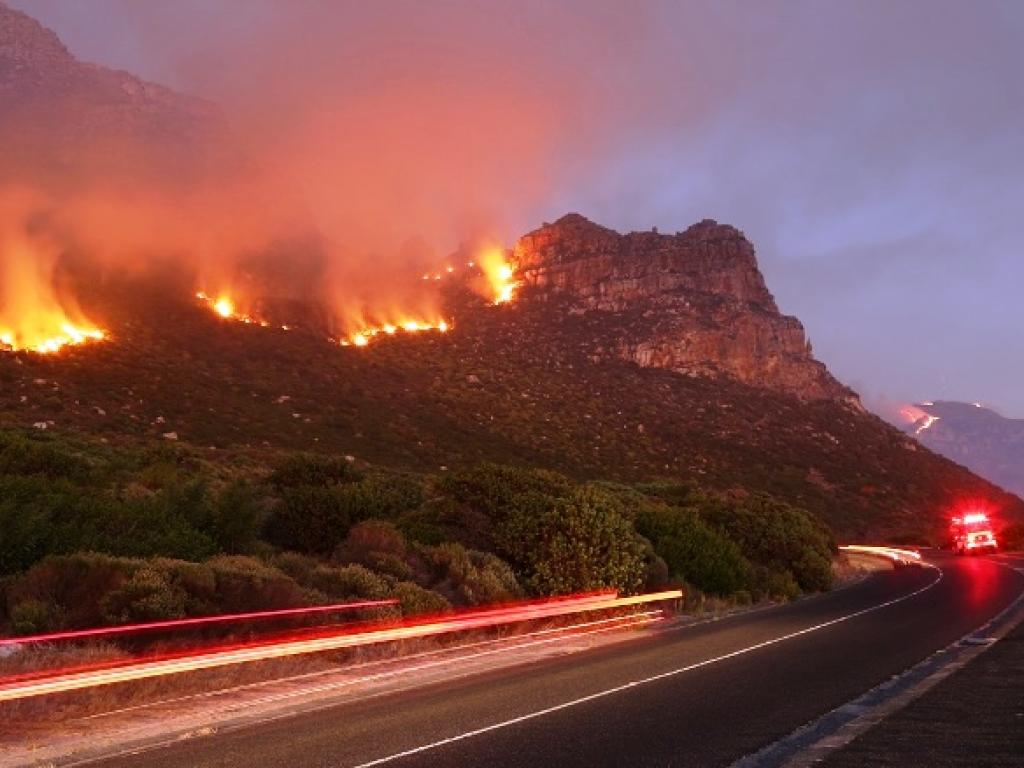Re-birth vs. Re-building: the pros and cons of the recent Cape Fire.

By Alicia Okeyo
The recent fire that raged across that Cape Mountains and Cape peninsula made headlines across news networks and left devastation in its path. Besides the obvious effects of fires on the fire-fighters who tirelessly fought the enormous flames earlier this month, there are several other impacts that fire in the Cape Floristic Region has on the vegetation, animals and human well-being in the Cape Town Area. A recent radio interview hosted by iono FM talk radio station, featured UCT Department of Biological Sciences’ Dr Adam West discussing some of the implications of the recent Cape fires. His insights highlight several points to ponder on.
The first and most significant, according to Dr West, is that the Cape Floristic region is a unique and precious global biodiversity hotspot, characterised by over 2000 species some of which are endemic only to this part of the world. The Western Cape government and nature conservation groups are therefore tasked with the enormous responsibility of protecting entire floral kingdoms. This unique Fynbos biome of Mediterranean-type shrub-lands is especially adapted to burning, as the plant species here need to burn roughly every 15 years to prevent this rich biodiversity from being lost.
Dr West believes, therefore that the recent Cape fire was very well-timed and necessary to make room for the re-birth and re-growth that will follow from a new explosion of life following the winter rainy season, in the early spring months. “Springs are fantastic; lots of new life – plant and animals - can be seen coming back into the system”, Dr West mentioned. It seems that the Cape fire may have been part of an essential natural system aimed at the upkeep of the endemism and biodiversity of this unique World Heritage site: “Fire is a good thing for Fynbos,” Dr West said, “Fire is only a bad thing if it happens too often”.
However, one cannot discuss the recent Cape fires without also bringing attention to the devastation that emerged amidst the raging flames. Destruction of property and negative impacts on human well-being are perhaps the most notable of these impacts of the recent Cape fires. Cape Town is a city that is unique to most others in that it is embedded in a fire-prone ecosystem. For the most part, urban planners have made substantial efforts to protect people’s lives and properties by exerting strict control with fire lines and regulations limiting buildings and houses to downhill from the mountain tops, which tend to be where the most vegetation is concentrated, and thus the most prone to boring. These rigid regulations, coupled with an excellent fire and rescue services of Cape Town’s firefighters, have kept the number of serious incidences, danger to human life, and re-building of property relatively low.
Dr West believes that perhaps it is more important to stop the encroachment of alien vegetation (brought into the delicate ecosystem by people) and the encroachment of private property into the system, which can fuel rampant fires making them unmanageable and even more devastating. Another concern with the negative impact of the recent cape fires was the loss of animal life; Dr West states that the outcry is valid; however, energy should be expended in attempting to alleviate the fragmentation of the natural landscape into blocks of natural land as opposed to original widespread areas that would allow animals to have room to escape fires.
Ultimately, the Cape Floristic Region is our home, and indeed we have a right to be protected from naturalistic disasters and to have our property protected. But we too, have a privilege to live in and amongst a World Heritage Site and in turn the responsibility to protect the floral kingdoms that exist therein. Understanding how fire works in a fire-probe ecosystem, allows us to be informed citizens that can contribute to achieving a balance between re-birth and re-building; a small sacrifice to maintain the greater good of the ecosystem.
Listen to the full podcast of Dr Adam West’s interview here: http://iono.fm/e/146010
Image credit: Timm Hoffman